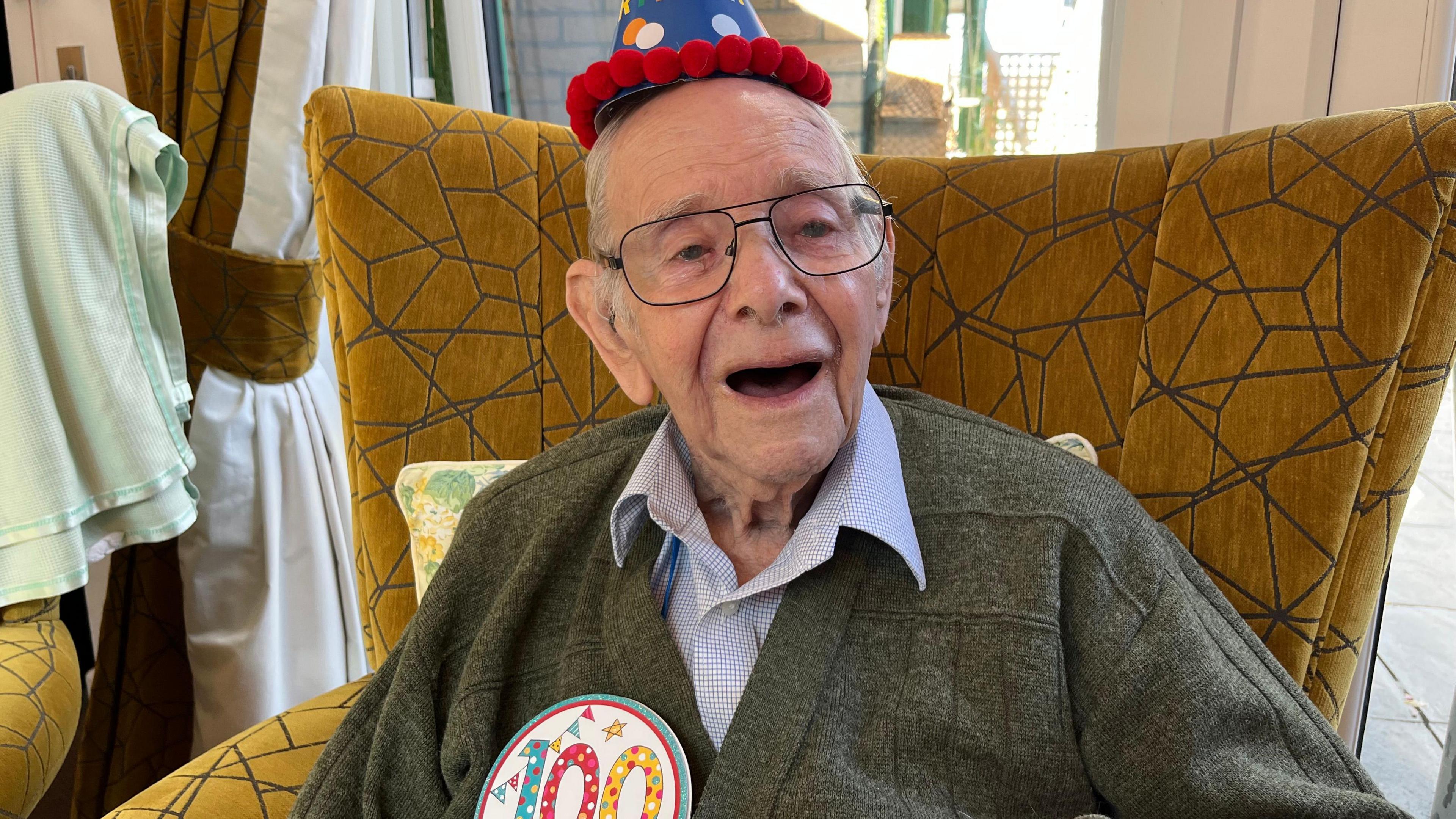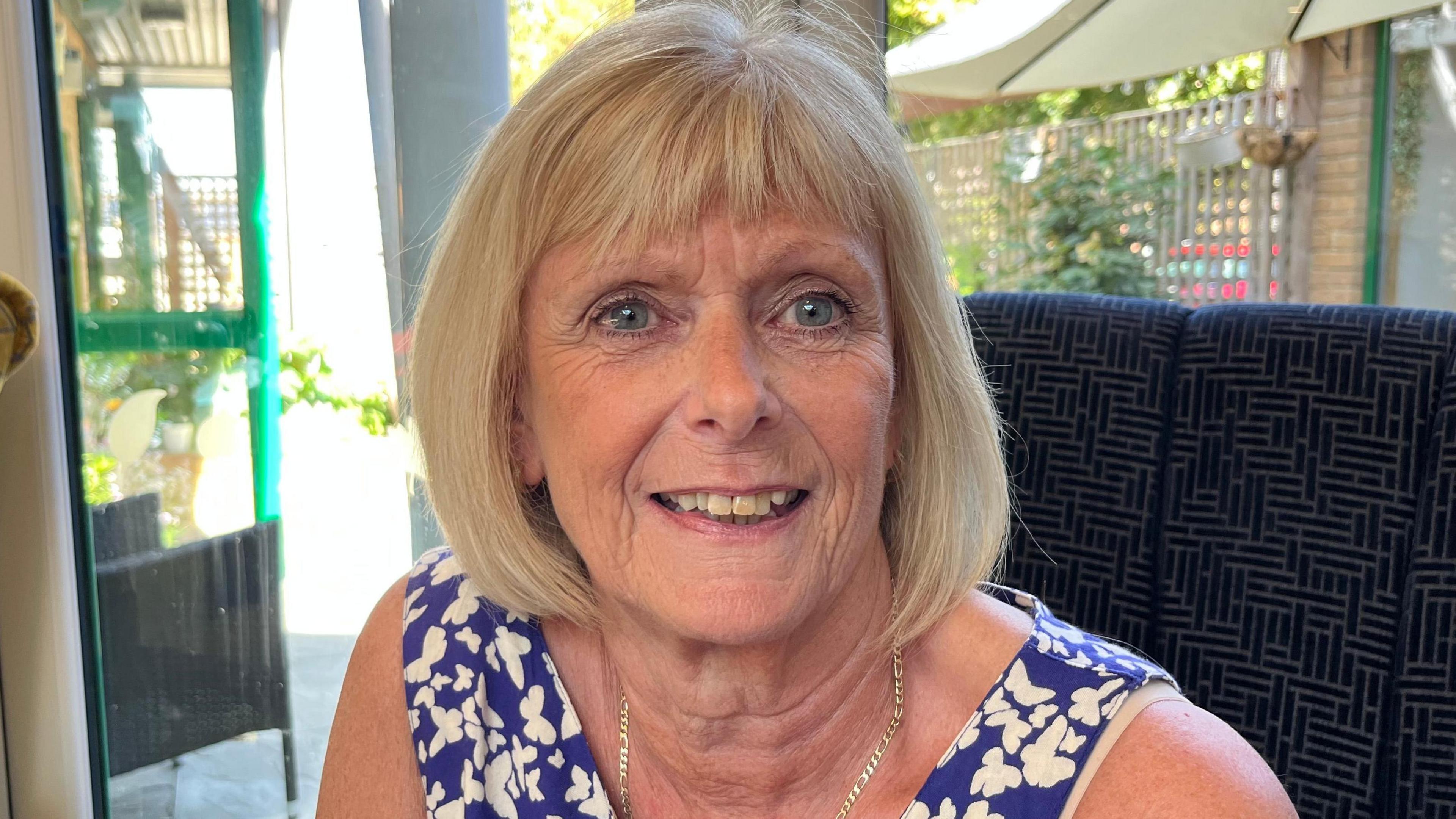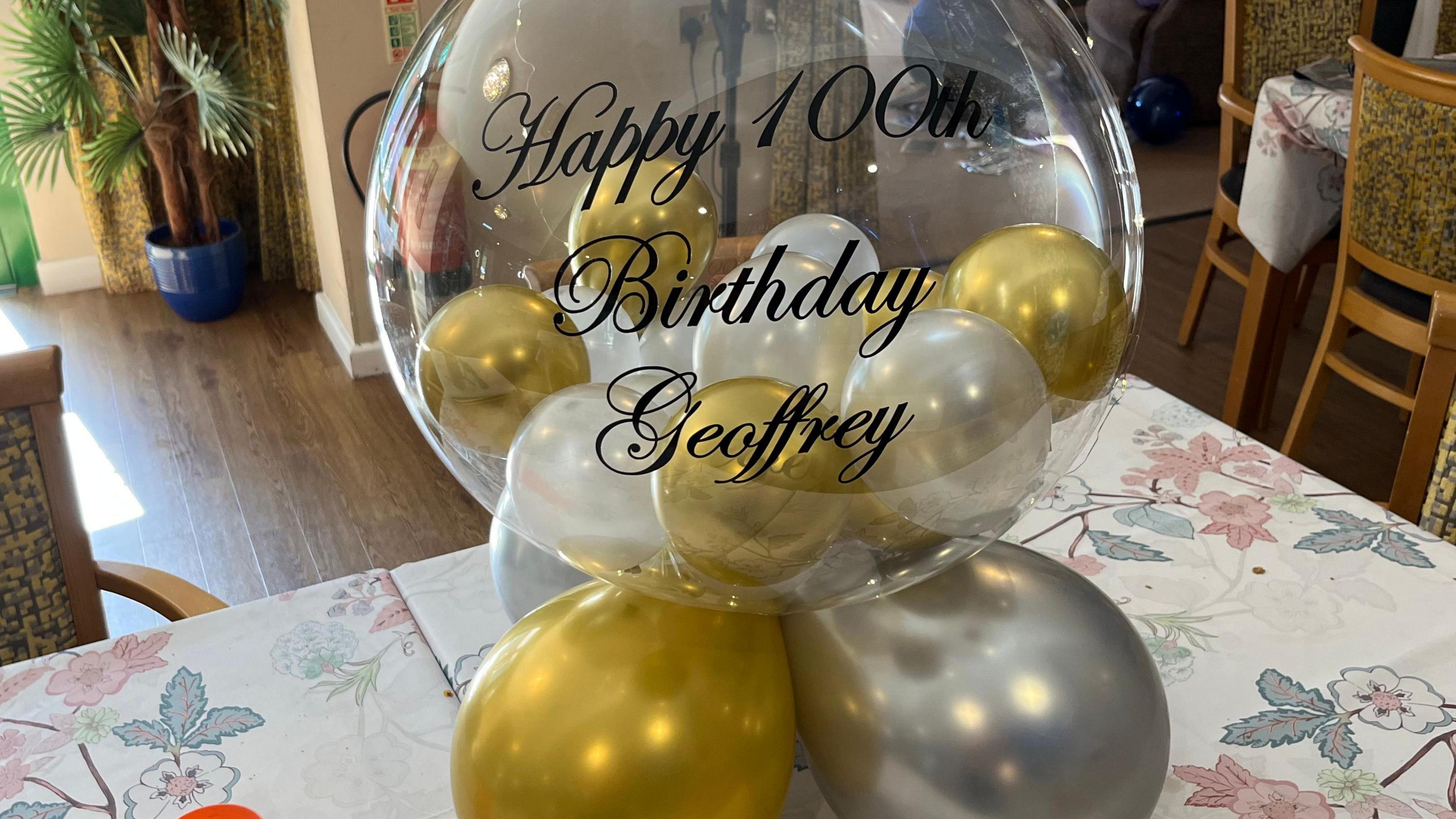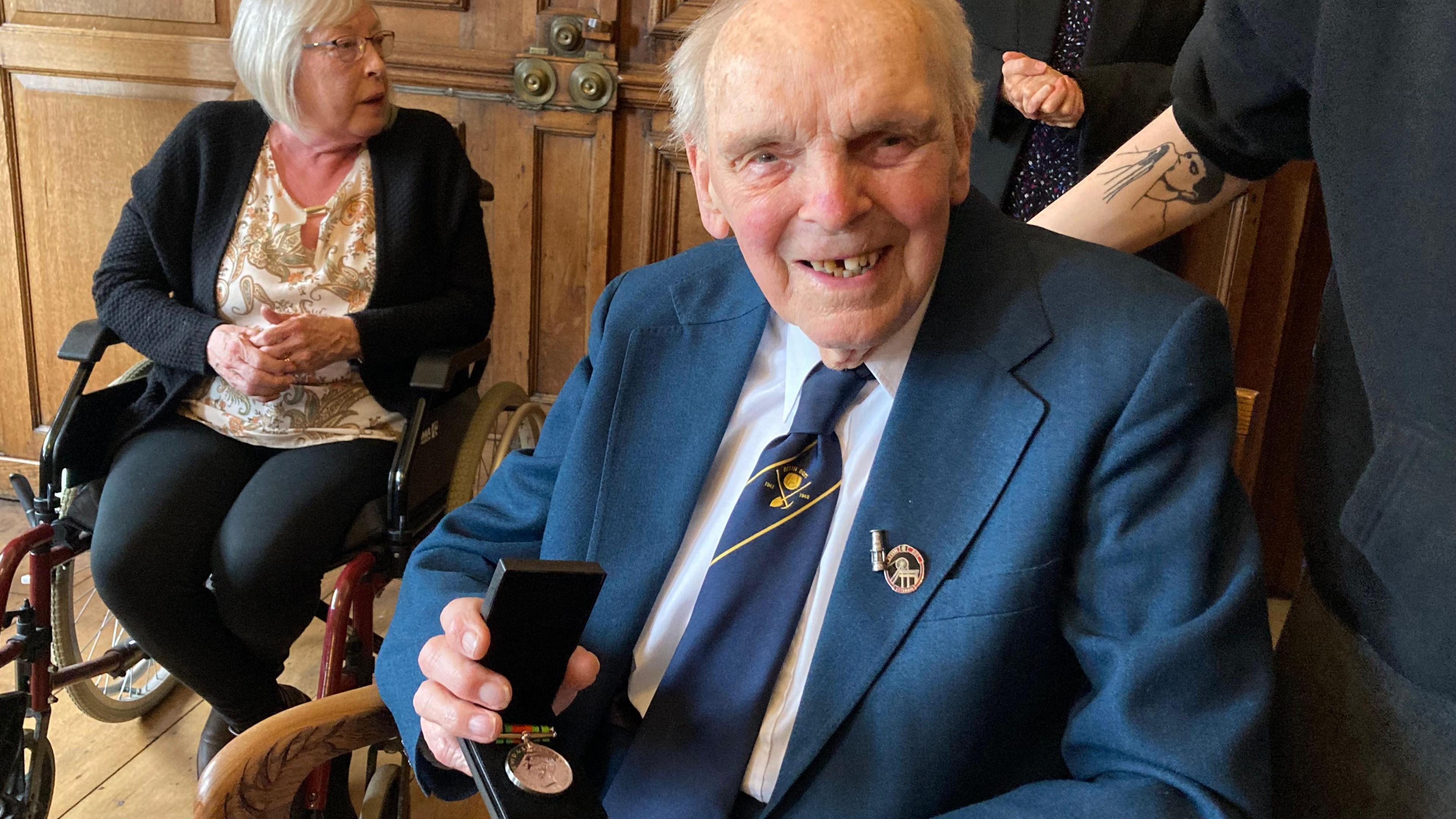Family's pride as Bevin Boy Geoffrey turns 100

"I think I'm fairly lucky," says former Bevin Boy Geoffrey Cook, who has celebrated turning 100
- Published
One of the oldest surviving Bevin Boys has been remembering his wartime efforts as he celebrates turning 100.
Geoffrey Cook grew up in Over, Cambridgeshire, and left school at 14 to become a farm hand, before he was conscripted at the age of 18 in 1944.
The centenarian recounted his time in a coal mine in Rossington, near Doncaster, as being "blacker than the darkest night".
His daughter, Elizabeth Poole, said there was little recognition for the efforts played by the Bevin Boys during the war, but it was something she was "very proud" of.
The Bevin Boys were young men of National Service age, conscripted during World War Two to work down the mines, in often dangerous and potentially deadly conditions, thanks to a scheme created by the wartime Minister for Labour and National Service, Ernest Bevin.
They didn't get medals when they were demobbed and, for many years, their efforts during World War Two were forgotten.
Official recognition by the British government was only conferred in 1995.

Mr Cook's daughter, Elizabeth Poole, says although her dad may not have seen the job as dangerous at the time, she was "very proud" of his efforts
Mr Cook celebrated his birthday with family at the Southwell Court Care Home in Melbourn, near Royston.
He put his long life down to "taking one day at a time, and not worrying about anything".
Despite the dangers of his wartime role, he said it was something he got used to.
He completed mostly haulage work made up of seven-and-a-half hour shifts, starting at about 06:00.
Speaking about the cages used to lower workers into the mines, he said: "You got used to it - you don't take no notice [but it was] scary at the start.
"You didn't know where you were going.
"It was blacker than the darkest night. You couldn't see your hand in front of you, it was real dark."

Mr Cook celebrated his birthday with 22 family members at Southwell Court Care Home
The conditions in which Bevin Boys were employed were often dangerous.
Many volunteered or were conscripted to help increase the rate of coal production.
While still working as a Bevin Boy, Mr Cook married his late wife Edith in 1946, who he met at a chip shop near the mine in Rossington.
He came out of the mine in 1947 and returned to Over to resume work on the farm.
His daughter, who lives in Northstowe, added: "I don't think he saw it [being a Bevin Boy] as dangerous at the time, but when you look back now it could have been quite a dangerous thing to do."
Get in touch
Do you have a story suggestion for Cambridgeshire?
Follow Cambridgeshire news on BBC Sounds, Facebook, external, Instagram, external and X, external.
Related topics
More like this story
- Published5 April 2024

- Published7 May 2013
- Published5 May 2013